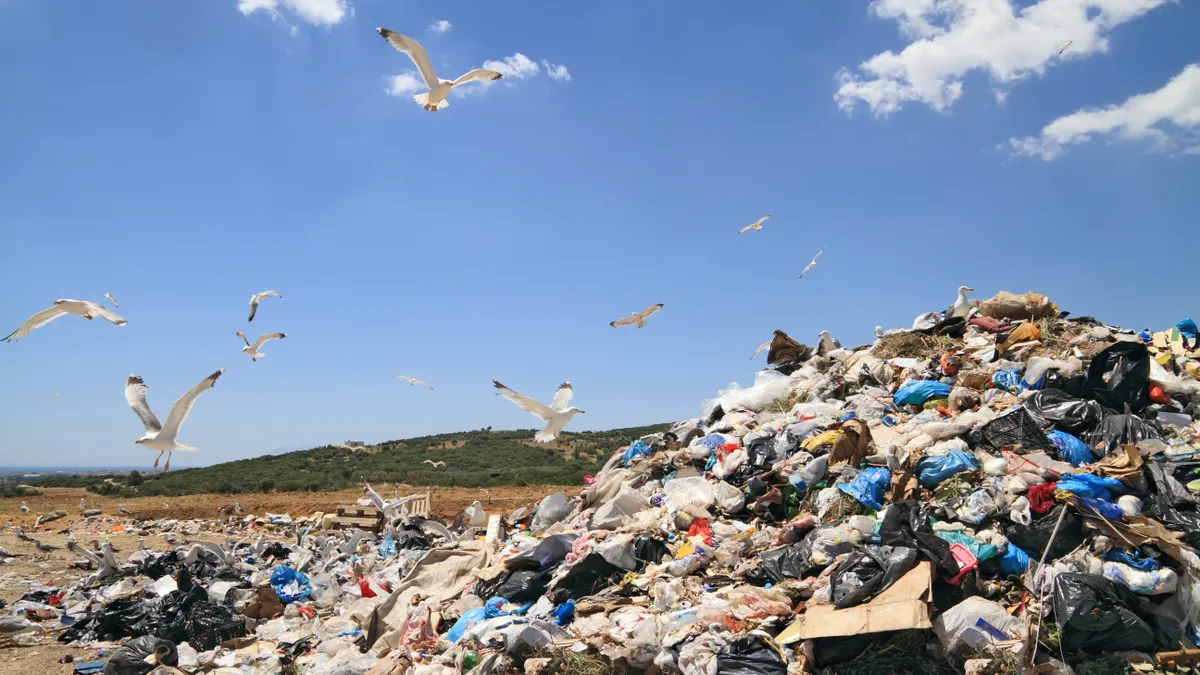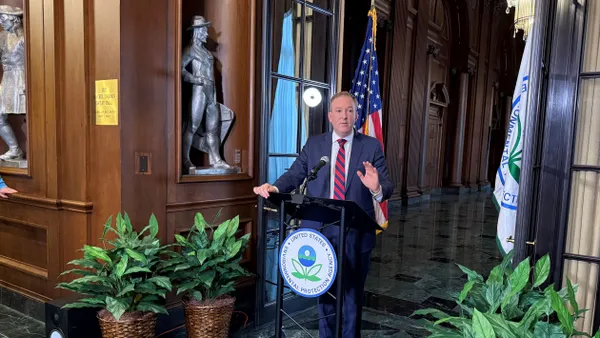UPDATE, May 25: Leachate drainage efforts are proceeding more quickly than expected at the Southeastern Public Service Authority's Suffolk landfill, as reported by The Virginian-Pilot.
During a May 24 meeting, a project manager from the authority's engineering consultant reported that leachate levels have been reduced by 20 feet in some areas of the two affected landfill cells. This is a sharp drop from the previously reported highs of 30 feet caused by more than 30 million gallons of build-up.
Ongoing efforts to pump and ship this liquid offsite will still require the full amount of funding this year, but the authority's board members now believe it's possible to reduce the $4.5 million in funding budgeted for the issue in the next fiscal year. This will help the authority continue with a plan to reduce tip fees at the site next year.
UPDATE, April 13: The Southeastern Public Service Authority's board of directors voted to approve nearly $1.94 million in contracts to begin dealing with 30 million gallons of leachate that have built up at their landfill in Suffolk, VA, as reported by the The Virginian-Pilot.
One contract is for up to $1.8 million for the transportation of about 200,000 gallons of leachate per day to four wastewater treatment facilities operated by the Hampton Roads Sanitation District. About 30 truckloads per day are expected to be transported over a five-month period starting in May. The board also approved a $138,000 contract to improve a roadway within the landfill so it can handle this truck traffic.
Estimates of the leachate volume continue to rise and it has now been reported that no accurate measurements were being recorded for the past seven years. An additional 50,000 gallons of the liquid are being pumped out daily - totaling 250,000 once the truck contract begins - but officials now estimate that 60,000 to 70,000 new gallons are being created in the landfill every day. Nearly 80 million gallons of leachate may have to be taken out before levels can be stabilized to meet state regulations.
SPSA has begun considering other ways to better manage this in the long-term, such as building a leachate treatment facility on-site, and will release an official evaluation of its options by June 30.
Dive Brief:
- Since the Southeastern Public Service Authority (SPSA) discovered more than 10 million gallons of leachate had built up at its landfill in Suffolk, VA, the reaction from local municipalities has been critical and angry. Some estimates indicate the cleanup could cost at least $6.7 million and take up to a year, as reported by The Virginian-Pilot.
- State regulations only allow for up to a foot of the liquid to be present at any time, yet levels of approximately 30 feet were recorded at one of the two cells with this issue. Last month, the Virginia Department of Environmental Quality issued a notice to SPSA that these conditions violated their waste management permit and additional action could be forthcoming.
- A local wastewater treatment facility is currently accepting 50,000 gallons of the liquid per day via a sewer line. Regional capacity is available to send an additional 200,000 gallons of leachate to other wastewater facilities, which will require expensive contracts for tanker trucks.
Dive Insight:
SPSA currently handles waste for eight cities and counties and the local officials that run them are not pleased. In addition to questions about why this issue wasn't discovered sooner, officials are even more concerned about how it will affect their budgets. Virginia Beach makes up the largest share of SPSA's revenue and could see $3.4 million in unplanned expenses during the next fiscal year.
This is because SPSA had planned to lower tipping fees after the current contract with Wheelabrator expires in January 2018. Last summer, after a period of contention, SPSA decided to go with newcomer RePower over Wheelabrator. That company's new facility won't be operational until October 2018, meaning more waste will be coming to the landfill in the meantime and generating additional leachate.
Leachate management often accounts for a sizable portion of any landfill's budget and lapses in regular procedure can have serious environmental consequences. As seen at Pennsylvania's Keystone Sanitary Landfill last year, unchecked leaks can easily lead to groundwater degradation and other issues. No leaks have been reported at the Suffolk landfill and SPSA officials say they are taking the matter seriously, but it's clear that monitoring procedures may need to be reevaluated.














